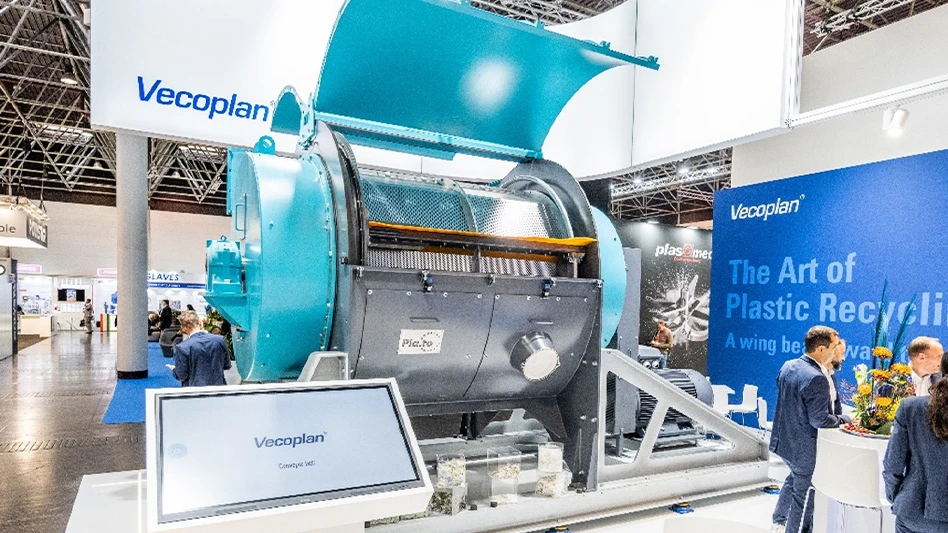
Plastic scrap prices continued their descent in July as supply outpaced demand for polyethylene terephthalate (PET), high-density polyethylene (HDPE) and polypropylene (PP) recovered at material recovery facilities (MRFs) in the U.S.
A reprocessor based in the Southeast says natural HDPE bales have been selling in the low 30-cents-per-pound range as of mid-July, a decline of 50 cents per pound over a five-week period. Mixed-color HDPE bales were selling for 8 cents per pound, down from nearly 20 cents per pound just a few weeks earlier.
He suspects a general economic slowdown is to blame. “Right now, all the markets are weak,” he says.
Demand is particularly soft from the pipe, flowerpot and automotive sectors, the reprocessor says, noting automakers took downtime around the Fourth of July holiday, which hadn’t been the case in recent years.
The manufacturing sector is in recession, he says, citing a recent trade association meeting where those in attendance spoke of reduced demand for recycled commodities of all types.
The Southeast-based reprocessor says HDPE bale prices likely have hit bottom but thinks PP bale prices, which were at 7 cents per pound in mid-July, will continue to fall.
He says demand for his company’s recycled material is off by 7 percent to 8 percent as of mid-July, though the reduction is allowing the company to take downtime for service. The reprocessor adds that three months of slowness would be fine, but going beyond that “starts becoming painful.”
“When supply starts to shrink, then prices will rise. That’s the natural law.” – a PET reprocessor based in the Northeast
A MRF operator based in the Midwest also notes slowness in the market. “Pricing is trending down right this moment with the processing capacity downtime taken at some places due to additional capital being invested in the industry,” he says. “Supply is up, causing some pricing to come down.”
Despite the situation as of midsummer, the MRF operator says he is hopeful and believes plastics will remain in high demand as brands try to meet their sustainability goals.
A PET reprocessor based in the Midwest also says she believes trends support growing recycled-content demand going forward as companies realize the need for recycled content in their packaging.

However, low virgin PET pricing is affecting what consumers are willing to pay for recycled PET (rPET), she says.
A PET reprocessor based in the Northeast also notes the “crazy swings of the last couple of years due to the pandemic—the biggest excuse-maker ever to exist.”
He’s uncertain how long the current low pricing will last but imagines it will rise by the end of the first quarter of next year.
“When supply starts to shrink, then prices will rise,” he says. “That’s the natural law.”
He says the struggling housing market is affecting sales of carpet and other fiber-based goods that consume rPET, though the bottle-to-bottle market seems to be holding up.

Explore the August 2023 Issue
Check out more from this issue and find your next story to read.
Latest from Recycling Today
- Equipment from the former Alton Steel to be auctioned
- Novelis resumes operations in Greensboro, Georgia
- Interchange 360 to operate alternative collection program under Washington’s RRA
- Waste Pro files brief supporting pause of FMCSA CDL eligibility rule
- Kuraray America receives APR design recognition for EVOH barrier resin
- Tire Industry Project publishes end-of-life tire management guide
- Des Moines project utilizes recycled wind turbine blades
- Charter Next Generation joins US Flexible Film Initiative





